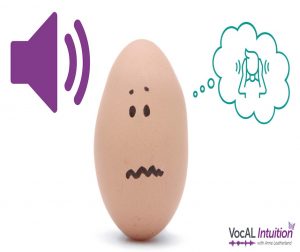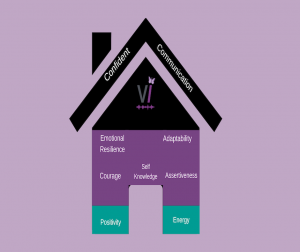As promised, here I am with some ideas about making yourself understood when you sing. You may remember that I wrote about intelligibility in speaking in my last blog. If you didn’t see it, why not pop over there now before you read this one? Speaking and singing are of course related, they are done with the same vocal equipment, just in different ways. If you are a singer or singing teacher both are important to look after and both are important to your intelligibility.
You have to sing words
This is the crux of the matter as far as singing goes. There are very few songs that don’t have words. So, unless you want to just sing the original theme to Star Trek for the rest of your life, or one of a handful of others, it’s time to think about how to tackle words.
Of course, there are similar things to think about here as with speaking i.e. articulation and prosody to name just two. However, songs have music! You have to get the words across whilst working with rhythm, pitch, pace and dynamic. These are usually set out by the writer, style depending. I say “style depending” because the amount of freedom you have can differ widely from genre to genre. How you treat the words in your song will be very much related to this.
Exploring your intelligibility in singing
First of all, ask a trusted friend to help and sing them a song they don’t know the words to in their own language). Then ask them:
- Did you understand what the song was about? If yes, how?
- Did you understand the words clearly?
- Did it matter in this song? If yes, why? If not, why?
That should give you some insights into what is going on.
Sometimes people don’t mind unclear words if the music is all-important to them. Sometimes the music, the attitude and the mood are more important as people tend to know the words anyway. I am using very broad brushstrokes here. Can you think of any instances of this e.g. pop, rock, metal, jazz, blues …
Here’s a different example. If you sing Classical music the intelligibility of the words is of course important, but in my experience, it comes secondary to the music, the beauty of tone and the expression of what the composer wants. On the other hand, if you sing in Musical Theatre then the text and the acting of it through song take centre stage. So, your intelligibility will be paramount. From this point of view, it doesn’t work to use classical approaches to text in Musical Theatre or vice versa. This doesn’t just mean clarity of articulation but the intensity and duration of the different sounds that make up the words. Changing the balance of these two things can make huge differences.

How well do your words need to be understood when you sing?
As I’ve said above, this depends on your genre and style within that, as well as the expectations of your audience. Where do you think you fit? Perhaps you feel that this isn’t important or perhaps you wish to sing more intelligibly.
If you would like your words to be better understood in context I can recommend the following:
- Look at how different consonants and vowels are made. It can be very enlightening when you want to know why they suddenly don’t work in your song. e.g. are you making them in the wrong place or in the wrong way, are they a problem on a certain pitch or rhythm, or are they under or over-pronounced for your style?
- Listen to successful singers in your particular style and genre. How do they handle the words? Is there anything you can do within your song to make yourself intelligible in the same way i.e. with the authenticity of style and genre?
- Consider the prosody inherent in the writing of the music. i.e. do the rhythms, pace and pitches lend themselves to the words? Some writers do this better than others. If they don’t then people may find it hard to understand you.
- You can also choose where to put word emphasis (within the style of the song) to make it easier to understand what you mean. To see what I mean by this take a simple sentence and say it 4 different ways with the emphasis on a different word each time. The meaning is changed. Of course, it may still be difficult if the song has been composed with musical emphasis taking precedence, leaving you to struggle to emphasize a tricky word on a tricky note(s).
Need more information?
If you’d like to know more about these and other related ideas why not get in touch to book a free Discovery Session, I’d be happy to chat. You can also follow me on Facebook or Linkedin. Finally, if you’d like to get top tips to your inbox every month why not sign up for “Your Vocalintuition”? No spam, just useful stuff!
Thanks for reading.




